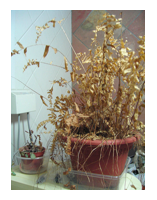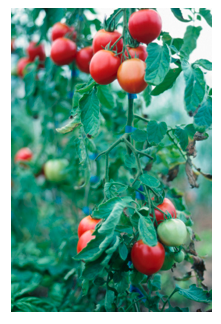 We’ve all made mistakes, some bigger than others! When I started growing vegetables I think I did everything wrong, so you’re not alone. Eventually … through trial and error …. blood, sweat and tears … and lots of research …. I got it right …Yah!!
We’ve all made mistakes, some bigger than others! When I started growing vegetables I think I did everything wrong, so you’re not alone. Eventually … through trial and error …. blood, sweat and tears … and lots of research …. I got it right …Yah!!
So here’s the “good oil” for you on how to get the most out of your vegetable garden to save you much angst and disappointment.
FAIL NUMBER 1 – no sunshine
Too many of us try to grow vegetables in the shade when they actually need about 6 hours of sun. Locate your vegetable garden in the sunniest position in the property … and if it’s out the front … then do it!
Put up a screen if you think it looks ugly to passers-by. If your only choice is shade then stick with leafy vegetables and cabbage family plants.
FAIL NUMBER 2 – growing the same vegetables
The best thing you can do to multiply pest and disease is to plant the same veggies in the same place year after year. Pests and pathogens need a host plant to live on, so you can break their reproduction cycle by not giving them a host. Plant a different sort of crop every year in one garden bed. If you only like growing tomatoes, then make sure you plant them in a different spot next time, or try growing vegetables in containers instead to give the soil a chance to recover. The same crop will deplete the soil of necessary nutrients.
FAIL NUMBER 3 – bad timing
Growing vegetables out of season is a disaster, unless you can set up protection or create a false microclimate to simulate better conditions. Growing broccoli in warmer months results in loads more aphids and very small heads – who wants that? Stick to the cooler months. Hearting lettuces, like Iceberg and Cos are best suited to cooler months too. Alternatively, don’t leave your tomatoes too late because they just won’t ripen in time, or worse, they won’t develop flowers at all. Check out the best time to sow seeds on the back of the packet and stick to it!
FAIL NUMBER 4 – not enough food
We often start off growing vegetables successfully but then they seem to run out of puff before they produce a decent crop. The reason is that they’re probably starving. If you want to grow tomatoes, or any flowering and fruiting crop for that matter, then make sure you give them enough potassium to encourage flower and fruit development as they grow. Sulphate of potash, rock dust, compost, kelp and wood ash are all good sources of potassium and should be added every month to ensure a good supply. Fertilise your soil with a green manure, compost and animal manures before every planting. Your last crop will have consumed everything in the last season.
FAIL NUMBER 5 – poor watering
Inconsistent watering is a death sentence for growing vegetables. Tomato skins split, carrots get deep furrows and lettuces bolt to seed if we suddenly get over enthusiastic and repeatedly pour on the water after a dry spell. Similarly, prolonged wet weather with pour drainage will lead to your vegetables dying from rot or fungus. On the other side of the coin, not enough water is going to mean that the plants can’t take up the nutrients in the soil, so they starve to death.
All the above are easily fixed …. just don’t do them!!
If you’d like to know how to avoid these problems then I’ve put all the answers into my Backyard Veggies online course. You can see the course overview here.





 Twitter
Twitter Facebook
Facebook
Help me prevent bugs eating my basil plants.
My basil plants are being eaten by something and I want to try something organic to deter the bugs.
Can you please advise me?
It’s probably caterpillars, slugs or snails devouring your basil.
Snails and slugs can be controlled with a beer trap. Partially submerge a dish filled with beer in the garden and leave it overnight. In the morning you’ll find many snails have been lured in and drowned.
Wasps help to control caterpillars by parasitizing them. So plant plenty of wasp attracting flowers in the garden.
See my previous post at https://theveggielady.com/caught-in-the-act/#more-1274
A great book to show you how to attract predators is Garden Guardians (see my review at https://theveggielady.com/garden-guardians-book-review/#more-1633)